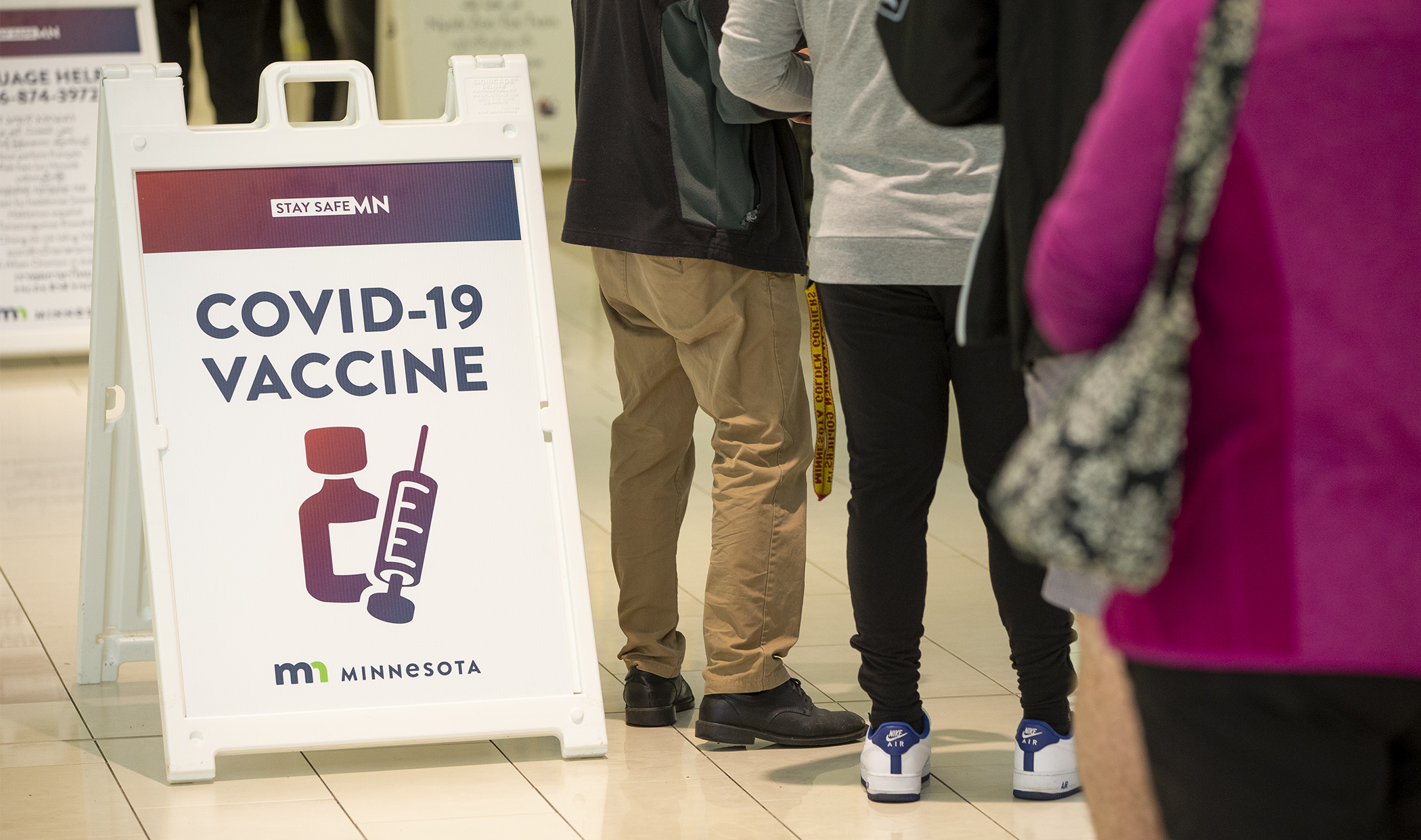House health panel briefed on MN's COVID-19 situation, potential future trends

[CORRECTION: The original story implied that people with long COVID were in the hospital. This is not always the case.]
REFILED Feb. 3, 2022 — How the state will respond to the ongoing COVID-19 pandemic is one of the topics the House Health Finance and Policy Committee will focus on this session. To prepare for the task ahead, members heard presentations from three COVID-19 experts Wednesday.
Each presenter focused on different aspects of the pandemic in Minnesota, but each stressed that vaccinating as many residents as possible is the best strategy to combat the virus and lead to a return to pre-pandemic economic and social conditions.
Assistant Health Commissioner Daniel Huff highlighted the crushing caseloads of the hospitals treating COVID-19 patients and how state resources are being deployed to assist the frontline workers in those settings.
Some of that support includes:
- $50 million in federal American Rescue Plan funding distributed to long-term care facilities to hire and retain employees;
- $40 million to hospitals to cover costs for emergency hospital staff, targeting hospitals experiencing staffing shortages due to COVID-19;
- regulatory relief based on input from hospitals and long-term care providers;
- four Department of Defense emergency teams provided staff to Hennepin County Medical Center, Fairview Southdale and Abbott Northwestern and St. Cloud hospitals;
- four nursing home-based alternative care sites for treating non-critical patients; and
- National Guard members serving as skilled-nursing response teams, providing crisis staffing support at 40 facilities.
A presentation by Dr. Michael Osterholm, director of the Center for Infectious Disease Research and Policy at the University of Minnesota, focused on the biology of the virus and what’s known about how the human immune system responds to different COVID-19 mutations.
He said the political debate surrounding whether natural immunity resulting from a previous COVID-19 infection is better or worse than immunity obtained through vaccination is not productive.
Both kinds of immunity are important, he noted, adding that current medical thinking is that a previous COVID-19 infection confers about the same immunity as one shot of a vaccine.
“But one shot is not enough,” he said.
Three shots of a vaccine give about a 95% rate of protection, he said, even against the new Omicron variant.
And he noted that trying to get natural immunity by a deliberate exposure to COVID-19 is “a very bad idea.”
In the final presentation, Dr. Greg Vanichkachorn, assistant professor of Preventive Medicine at the Mayo Clinic, focused on long-haul COVID-19, where patients contracting the disease experience symptoms and health effects of the disease months and even years after contracting it.
In his experience at Mayo Clinic, the long-term effects in patients and their frequencies are:
- fatigue 80%;
- respiratory 59%;
- neurologic 59%;
- cognitive impairment 45%;
- sleep disturbance 30%; and
- mental health issues 26%.
Vanichkachorn said that as the pandemic continues, the number of patients with long-haul COVID-19 will possibly grow to more than 7 million nationwide, with about 2.2 million of those unable to return to work.
Related Articles
Search Session Daily
Advanced Search OptionsPriority Dailies
Legislative leaders set 2026 committee deadlines
By Lisa Kaczke Legislative leaders on Tuesday officially set the timeline for getting bills through the committee process during the upcoming 2026 session.
Here are the three deadlines for...
Legislative leaders on Tuesday officially set the timeline for getting bills through the committee process during the upcoming 2026 session.
Here are the three deadlines for...
Latest budget forecast projects nearly $2.5 billion surplus, but red ink down the road
By Mike Cook Three weeks before Christmas, state budget officials provided some merriment to Minnesotans. However, Grinch-like transformations lurk.
Released Thursday, the November ...
Three weeks before Christmas, state budget officials provided some merriment to Minnesotans. However, Grinch-like transformations lurk.
Released Thursday, the November ...